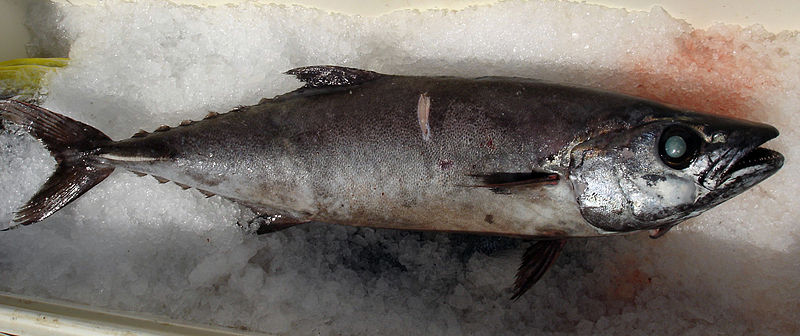It’s Fishy
When you eat out at a restaurant, the process is usually pretty clear and understood: you read the menu, make a selection, and the server brings you what you ordered. Sometimes there are a few glitches, sure, and sometimes the menu omits a key ingredient (or more likely, you didn’t read carefully enough) and that torpedoes your meal. But that’s pretty rare. Typically, you get what you expect.
You think.
There are plenty of situations where you could be eating just about anything — given the presentation, sauces, or simply your unfamiliarity with the items you ordered, the restaurant could serve you something quite different and you’d be none the wiser. And in one case, that happens a lot more than you’d expect. The food in question: white tuna.
Typically, “white tuna” refers to albacore, the stuff you find in cans of StarKist, Bumble Bee, or Chicken of the Sea branded tunas here in the United States. But according to a Boston Globe report from 2011 (recounted by ABC News as the Globe has a wonky paywall), there’s a good chance — a very good chance — you’re getting something else instead. Every single one of the 23 types of white tuna they tested turned out to be escolar, a cheaper alternative to tuna.
And the word “alternative” is used lightly — because escolar is not really an acceptable one. Not only is escolar not tuna, it’s probably not something you want to be eating a lot of. Escolar is often referred to as the “Ex-lax fish” because eating too much of it — more than six ounces — tends to afflict the feasting customer with a bad case of the runs. That’s probably not the after-dinner experience you’re after when you order the tuna.
Some jurisdictions take the laxative effect rather seriously. Japan has banned the fish since 1977, per the New York Times. Another source adds Italy to the list of nations banning the fish from being sold for human consumption, while asserting that Canada, Denmark, and Sweden require that offers for sale come with a warning about adverse health effects. The US, well, not so much. The Food and Drug Administration “recommends” that escolar “not be marketed in interstate commerce,” which is effectively FDA-speak for saying that the product shouldn’t be sold. But ultimately, it can be.
Everyday consumers are ill-equipped to defend against this fishy type of fraud, and after the Globe’s report, many government agencies claimed they’d step in and do spot checks (ABC called them “field tests”) but there’s reason to believe they’re either not occurring or are ineffective. In 2013, 18 months after the Globe’s report, Slate reported that fish fraud was still incredibly common.
Bonus Fact: During one quarter in 2003, Darden Restaurants — which owns a number of well-known national franchises — reported that revenues were down year-over-year by about 5%, totaling about $3 million. The reason? Darden owns Red Lobster, which was running an all-you-can-eat crab legs special for seven weeks during that quarter. Unfortunately for Red Lobster, their price and consumption models weren’t accurate. As the St. Petersburg Times reported, management “vastly underestimated how many Alaskan crab legs customers would consume” and, to make matters worse, wholesale prices for the crab legs spiked. Darden attributed most of the $3 million loss to this promotion gone awry. Red Lobster’s CEO left the company shortly thereafter.
From the Archives: Anti-Terror Fish: Fish that fight terrorists, as the name would suggest.
Related: Why does this 72 pack of tuna cost $2,500? (I honestly have no idea.)

